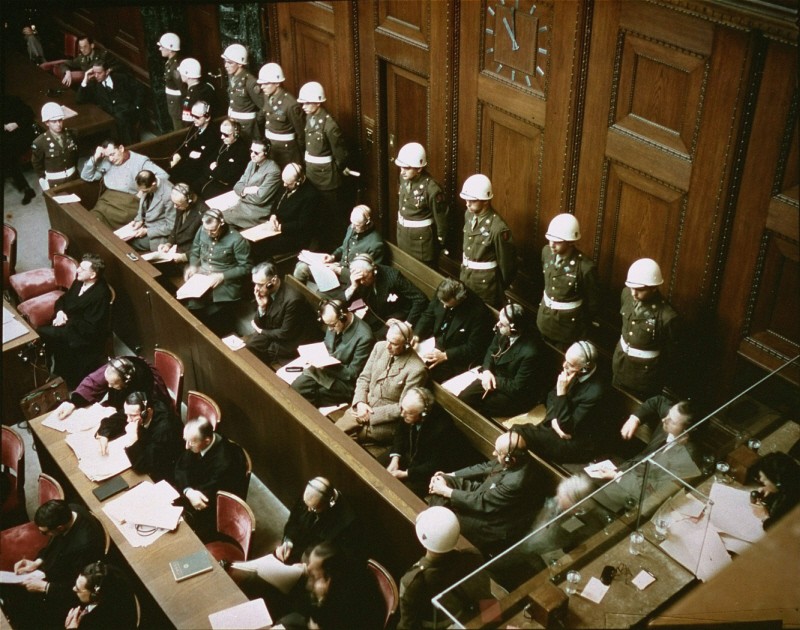
Arthur Seyss-Inquart
In the immediate aftermath of the Holocaust, the world was faced with a challenge—how to hold individually accountable those German leaders who were responsible for the commission of monstrous crimes against humanity and international peace. The International Military Tribunal (IMT) held in Nuremberg, Germany, attempted to face this immense challenge. On October 18, 1945, the chief prosecutors of the IMT brought charges against 24 leading German officials, among them Arthur Seyss-Inquart.
Arthur Seyss-Inquart (1892–1946) was Reich governor of Austria, deputy governor to Hans Frank in the General Government of Occupied Poland, and Reich commissioner for the German-occupied Netherlands. In the latter capacity, Seyss-Inquart shared responsibility for the deportation of Dutch Jews and the shooting of hostages.
He was found guilty on counts two, three, and four (crimes against peace, war crimes, and crimes against humanity) and sentenced to death. Seyss-Inquart was hanged on October 16, 1946.
Critical Thinking Questions
- How did Seyss-Inquart defend his actions and choices at the IMT?
- How do leaders of governments and organizations accused of mass atrocities rationalize their choices?

